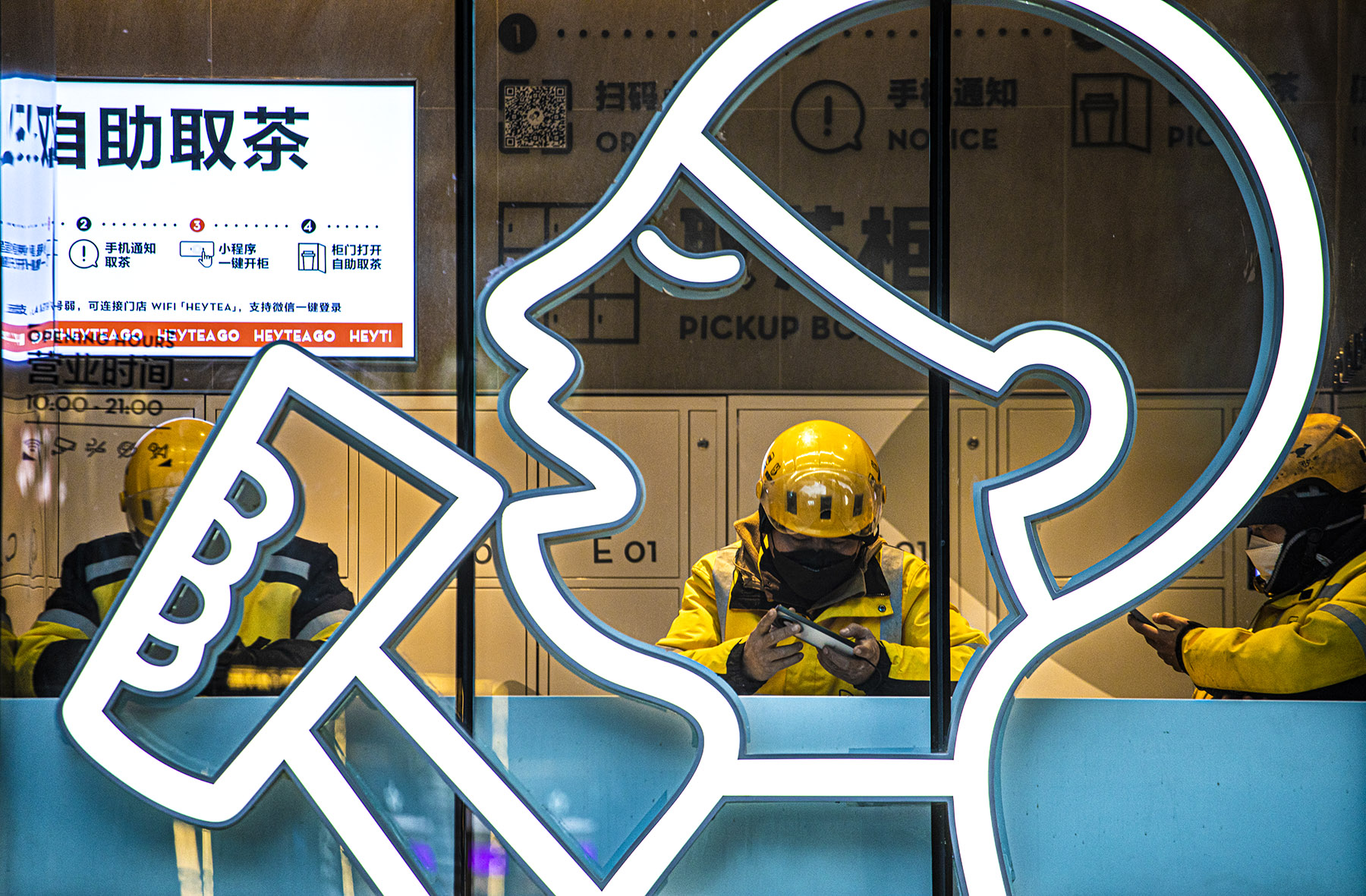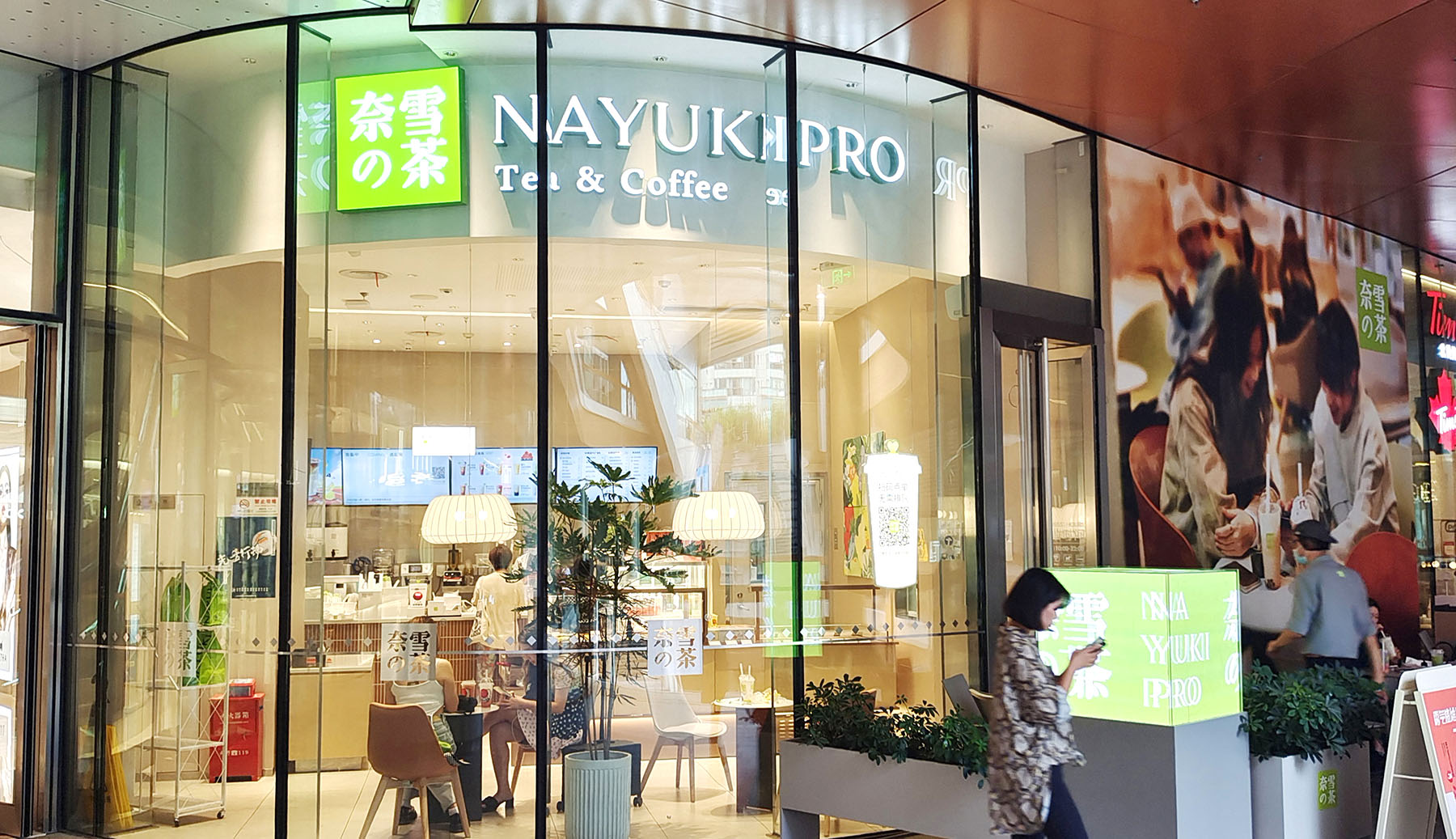Heytea says many shops' revenues jumped more than 300%, some even by 900% during Spring Festival

This Spring Festival holiday, sales of tea and coffee beverages surged across county level stores in China, fueled by booming domestic tourism and a growing cafe culture among young people returning home to smaller cities.
At Wula Coffee, a local cafe in Lingshui Li autonomous county, Hainan province, business has been thriving.
"From morning to night, we've been working nonstop. Customers are eager for tea and coffee drinks to enhance their holiday experience," said Xia Xia, an employee at the cafe.
READ MORE: Coffee shops brew new growth with tea drinks
Lingshui, located just 20 minutes' drive from Sanya, has witnessed a rapid expansion of tea and coffee chains in recent years, including brands like Chagee, Starbucks, Luckin Coffee and ChaPanda. During the holiday week, long lines formed at these stores.
"To avoid waiting, I had to order through my phone and pick up my drink half an hour later," said Liu Qianru, a traveler from Beijing who visited Lingshui for the warm weather. When she opted for delivery, it took two hours to arrive. "By then, my latte was no longer hot," she said.
With more returning residents and visitors, county-level cities have seen a noticeable increase in branded tea and coffee chains, reflecting broader consumption trends across China.
According to data from the Ministry of Culture and Tourism, domestic travel reached 501 million trips during the eight-day Spring Festival holiday, up 5.9 percent year-on-year and 20.72 percent higher than the same period in 2019. Domestic tourism spending totaled 677 billion yuan ($92.68 billion), marking a 7 percent year-on-year rise and a 31.74 percent increase from 2019.
Spring Festival travel reports from online travel agencies and e-commerce platforms indicate that experiencing local Spring Festival customs and engaging with intangible cultural heritage were popular themes this year and this trend significantly boosted sales at tea and coffee chains nationwide.
Data from the Ministry of Commerce showed that during the 2025 Spring Festival, sales revenue for major retail and catering enterprises increased 4.1 percent year-on-year.
Leading on-premise tea and coffee chain brands capitalized on this trend. Heytea said that revenues of many of its stores surged more than 300 percent compared to that of last month, with some jumping more than 900 percent. This surge in sales is attributed to the "returning home rush" and the "travel boom", which have driven consumer demand in these areas, said the company.
Cities such as Jiayuguan in Gansu province, Xinzhou in Shanxi province, Shaoguan in Guangdong province, Lianyungang in Jiangsu province and Bengbu in Anhui province, saw significant increases in sales, making them some of the top cities in terms of sales growth, according to Heytea.
The company said stores located in historic and cultural destinations — such as the Qiao Family Compound and Pingyao Ancient City in Shanxi, and Nanjing's Qixia Temple — experienced record-breaking sales. Its founding store in Jiangmen, Guangdong, became the number one in sales during the holiday. During peak hours, the waiting list was for more than 1,000 cups.
Tea chain brand Chagee reported a similar boom, with sales in scenic spots including Pingyao Ancient City and Xijiang Qianhu Miao Village in Southwest China's Guizhou province jumping 300 percent over the same period last year.
Nayuki, another tea chain, said many of its stores during the holiday saw sales up compared to last month and the same period of last year. Some increased more than 630 percent in revenue. Nayuki also saw strong demand in third and fourth-tier cities such as Taizhou in Jiangsu and Danzhou in Hainan.
ChaPanda said the top 10 cities with the highest growth in store sales during Spring Festival were all non-first tier cities, including Xiaogan in Hubei province, Fuyang in Anhui, Huai'an in Jiangsu and Nanchong in Sichuan province.

Online sales mirrored this momentum. Meituan Takeaway data showed that national milk tea sales skyrocketed 180.4 percent year-on-year during the holiday. WeChat Search data revealed that one-sixth of the top 30 most-searched terms during Spring Festival were related to milk tea brands.
Jason Yu, general manager of CTR Market Research, said the booming sales of new tea drinks in lower-tier cities are driven by consumption upgrades, the festival economy and leading brands' intensified market penetration in recent years.
"New health concepts and lifestyles have gradually replaced traditional alcoholic beverages with new tea drinks, making them a popular choice for social gatherings and leisure activities," said Yu.
The Spring Festival holiday effect and the trend of young travelers returning home to niche destinations have further accelerated this shift, he added.
Looking ahead, "The challenge for brands will be sustaining consumer spending and habits beyond holiday periods to ensure long-term growth in lower-tier cities," said Yu.
Major on-premise coffee brands have also banked on the rising demand. Starbucks, which now operates 7,685 stores in China as of the first quarter of its 2025 fiscal year, has reached a major milestone — expanding into over 1,000 county-level markets.
The company launched a new Spring Festival collection featuring coffee beans, beverages, food and merchandise across all its stores. Among them, Starbucks introduced its first coffee bean product dedicated to Spring Festival.
Starbucks China has continued its expansion into culturally significant locations. It recently opened stores in Putuo Mountain in Zhejiang province, blending coffee culture with Buddhist heritage, and on historic Dongqian Street of Shengzhou in the same province, a century-old commercial district now hosting a Starbucks.
As the Spring Festival holiday concluded, the bustling activity in county-level coffee and tea shops gradually subsided. However, industry data suggest that the market's growth trajectory remains strong.
ALSO READ: China leads global functional drinks growth
The 2023 New Tea Drink Research Report, released by the China Chain Store and Franchise Association and Meituan New Catering Research Institute, predicts that by the end of 2025, the market size of Chinese-style tea drinks will reach 242.5 billion yuan. The combined market for tea drinks and freshly brewed coffee is expected to surpass 450 billion yuan.
Despite intensifying competition, the Spring Festival consumption boom has reinforced the untapped potential of the tea and coffee on-premise markets in China.
According to Beijing Business Today, data from Meituan show that search volume for "work resumption milk tea" surged over tenfold year-on-year after the holiday, reflecting strong ongoing demand.
With young professionals returning to work in major cities, Beijing, Shanghai, Guangzhou and Shenzhen of Guangdong, and Chongqing ranked as the top five cities for post-holiday milk tea searches.
Employees under 35 accounted for nearly half of all orders, while another 30.5 percent came from workers aged 35-40. The trend of treating colleagues to milk tea as a "work resumption blessing" has further boosted sales momentum for leading brands.


